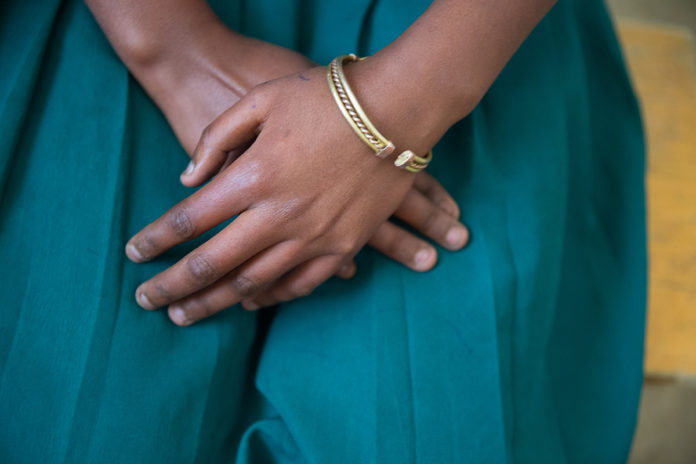
The ‘Menstrual Cycle’ is the regular natural change that occurs in the female reproductive system (specifically the uterus and ovaries) that makes pregnancy possible. The cycle is required for the production of ovocytes, and for the preparation of the uterus for pregnancy.
There are four stages of the menstrual cycle:
Stage 1
Your cycle starts each month when your womb creates a fresh layer of blood-rich membrane. This is your body preparing to accommodate the egg just in case it gets fertilized.
Stage 2
The next stage is ovulation, when an egg is released from one of your ovaries and travels to your womb.
Stage 3
If the egg meets a sperm cell on its way to your womb and fertilization takes place, you can become pregnant. If it doesn’t, your body will remove the unused blood-rich membrane lining your womb. This is your period.
Stage 4
Your period starts and you bleed for 3-7 days.
All these stages form a repetitive cycle every month unless you become pregnant or until you begin menopause. This phase normally occurs after a woman reaches her forties and can vary from person to person, and it marks the end of her reproductive cycle.
A menstrual cycle is one of the key procedures of a lady’s body which merits most extreme alert and self-mind. Guaranteeing appropriate cleanliness amid menses, and eating right is the way to facilitate the torment one experiences.
- Change the sterile napkin each 4-6 hours.
Changing sterile napkins or tampons inside each 4-6 hours is the Cardinal lead to building up vaginal cleanliness. Menstrual blood, when discharged from the body pulls in different life forms from our bodies, which duplicate in the glow of the blood, and cause aggravation, rashes or urinary tract contamination’s. Changing one’s sterile napkin or tampon routinely checks the development of these life forms and counteracts diseases.
- Wash your external genitalia with warm water.
It is preferable to use warm water to clean your external genitalia. You do not have to clean vagina with water and soap as it can take care of the cleaning. Also while washing your genital area, make sure that you wash from front to back. This will help you avoid urinary tract infection.
- Try not to utilize cleansers or vagina cleanliness items.
While utilizing vaginal cleanliness items regular is a smart thought, utilizing these items amid menses can turn things around. Vaginas have their own particular cleaning instrument which becomes an integral factor amid menstrual cycles, and these simulated cleanliness items can hamper the common procedure prompting diseases and development of microscopic organisms.
- Dispose of the sterile napkin legitimately.
Arranging off one’s tampons and sterile napkins legitimately is an essential stride. One should wrap them appropriately before one discards them, so the microorganisms and contamination’s don’t spread. One should see that you don’t flush them, since that will obstruct the can making the water go down, spreading the microscopic organisms on top of it. Washing one’s hands appropriately are very important.
5. Take care of your pads
Your sanitary pads will be in direct contact with your skin, so you need to take care of your pads to avoid pad rash and infections. The genital area is sensitive and pad rash can lead to itching. So, keep your sanitary pads in a dry and clean place.
6. Wash your hands after changing your pad/tampon/menstrual cup
Always remember to wash your hands after changing the sanitary pad or tampons or the menstrual cup. This is general hygiene practice and should always be followed. Also, you must wrap the used pad and tampon and throw it in the dustbin.
- Stick to one technique for sanitation.
Ladies tend to utilize tampons and clean napkins, or two sterile napkins at the same time amid overwhelming stream which is a productive system. While it might keep one dry and avert recoloured garments, it can bring about diseases as well. The mix of two methods retains the blood making us absent to the need to change our tampons and sterile napkins. Without continuous change, the gathered blood welcomes microscopic organisms and causes contaminations.
8. Keep separate underwear
Use separate underwear during your period. Wear them only when you are on your periods and wash them separately using Dettol, warm water and soap. Make sure you carry extra panties to use in case of leakage.
- Eating good food and proper food.
Eating good food and proper food with some proper measure of nutritional is very important for those difficult days to deal with the period. Good food means in the proper quantity of food and good and well nourishes like, cereals, fresh vegetables’, fruits, fish, meat, milk etc.
The activists, politicians, and organisations have been demanding have that the central government scrap taxes on sanitary napkins. From better attendance of female students in schools to better employment opportunities for rural women, they have listed a number of reasons for doing so.
The percentage of women and girls in the country who menstruate have access to sanitary napkins are considerable less. It’s not enough to just demand sanitary pads. There is a lot more that we need to do in order to make sure this statistic changes.
Menstrual hygiene and management can be essential in ensuring that your everyday life is not interrupted by menstruation. It ensures that you can continue with your daily routine such as going to school, going to work or doing household chores.
It can also prevent potential situations of embarrassment and in turn, make you feel confident about yourself and your body. In this sense, maintaining proper menstrual hygiene is important for your well-being and development.

























